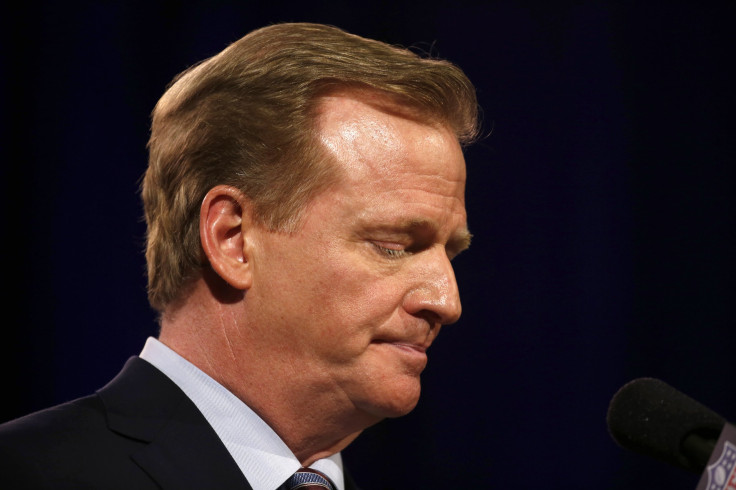NFL Concussion Lawsuit Settlement Approved By Federal Judge, Could Cost League $1B Over 65 Years

U.S. District Court Judge Anita Brody granted final approval Wednesday to a settlement between the NFL and thousands of former players who accused the league of hiding long-term health risks associated with concussions. The deal calls for the distribution of financial aid and compensation for affected players over a 65-year window and could cost the NFL $1 billion, the Associated Press reports.
The thousands of former NFL players expected to experience post-career health effects from head trauma will receive an average of approximately $190,000 apiece under the settlement. The deal compensates all retired players affected by concussions, not just those who initially sued the league, the New York Times reports. But the players will not receive any financial benefits until any and all appeals of the settlement are resolved.
"Retirees and their families will be eligible for prompt and substantial benefits and will avoid years of costly litigation that -- as Judge Brody's comprehensive opinion makes clear -- would have an uncertain prospect of success," NFL attorney Jeff Pash said in a statement. Representatives of former players also praised the settlement as a means of dispensing much-needed compensation while avoiding trial.
The league could be required to pay between $1 million and $5 million to players who suffered severe cognitive disorders post-retirement, such as Parkinson’s disease, or in the event of a death related to head trauma suffered in the league. An additional $10 million would be set aside for future education about the risks associated with concussions. League estimates suggest 6,000 of the NFL’s 20,000 retirees will ultimately suffer from dementia or Alzheimer’s disease, the AP reported.
An initial settlement reached in 2013 called for the NFL to pay $675 million in compensation for specific, diagnosable diseases. But Brody, sitting in Philadelphia, rejected the settlement on multiple occasions and asked negotiators to remove caps on compensation and medical monitoring of affected players, as well as to extend coverage to those who played in the NFL Europe developmental league.
Brody dismissed claims by critics that the settlement failed to account for future exams that might diagnose chronic traumatic encephalopathy, a neurological disorder that, at present, can be diagnosed only posthumously. Detractors have also said the settlement is insufficient when compared to the NFL’s total revenue. Approximately 200 former players opted out of the settlement and could individually sue the league.
© Copyright IBTimes 2024. All rights reserved.






















